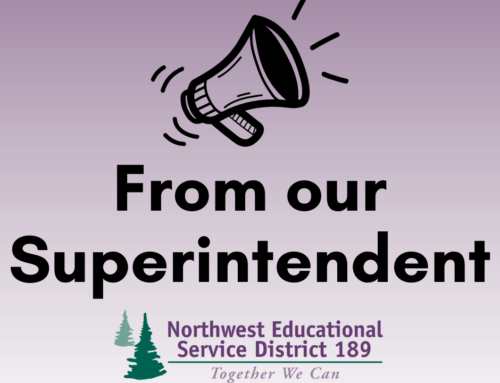A few years ago, my niece Angelina was just starting school. Thinking back on that time makes me consider how different things are now for children going to school for the first time and for their caregivers. Though starting kindergarten has always been an exciting and anxious time for children and their caregivers, this year, with so many extra layers of procedures, protocols, and requirements, it has even more potential for being a bit overwhelming. Add to that the fact that many children will be entering school in first grade rather than kindergarten, and you have an even more complicated picture.
You may be wondering if I’ve lost my sunny disposition or if too much quarantine has gotten to me, but fear not, dear readers. I’m writing to acknowledge some very real challenges that continue to face children, teachers, and families and also to remind, you, the educators in this equation, of what you have learned and accomplished over the past 18 months. Many of these things would have been considered impossible prior to March 2019, but they did, in fact, happen and you are still the people who made them happen. Maybe a bit older and more tired, perhaps with a more nuanced understanding of how sourdough is made or how TikTok can quickly eat up entire chunks of your day without notice, but still with helpful experiences and approaches under your belts. Let me remind you what I am referring to:
Educational Technology
- With just a weekend to prepare, educators turned classrooms into virtual spaces (some even nicer than your physical classrooms).
- You learned how to use a learning management system (LMS), or several of them. Did you even know what an LMS was before then?
- You learned how to provide impromptu tech support to students and families- perhaps not to Geek Squad level, but certainly more than you ever had before.
Relationships & Community-Building
- You figured out how to keep student anxiety at bay and give students the space to really connect with one another in innumerable new ways.
- You became partners with parents in ways that only a crisis could have facilitated- knowing that you truly couldn’t do your job without their support and cooperation.
- You shared your authentic selves and gave your students space for the same- recognizing the heavy burden that the pandemic was placing on us all.
Logistics
- You developed and/or followed new schedules and venues for learning once, twice, or maybe even eleven times in one school year- shifting with the needs and opportunities of each moment to maximize student connection and learning.
- Regardless of your role in the school, you took on more nursing and custodial responsibilities than ever before (Clorox wipes and digital thermometers anyone?).
- You managed to meet the needs of students joining you through Zoom or Google Meets while also teaching students in your classroom; not to mention the synchronous and asynchronous opportunities you created for increased access to learning. (Again, I don’t believe I had ever uttered the words synchronous and asynchronous before March 2019).
I wanted to remind you of all of these things for two reasons. The first is that, though you may feel overwhelmed right now, educators are rock stars who moved mountains over the past year and a half. The good news is that you can utilize the incredible skills, understandings, and capabilities from last year that you’ve built in this next phase of our collective experience with education in a pandemic.
The second reason is that, though most students will be present in your classrooms and much of your new capabilities won’t be utilized during live and in-person learning, some of what you’ve learned is more important than ever. Specifically I’m thinking about the true partnerships that you learned to form with parents and caregivers. Though you might not need caregivers to log their children into a Zoom or submit assignments over See Saw, the connection is more important than ever.
In talking with friends and family who are sending their children to school (some for the first time), the safety protocols and procedures that complicate movements into and around the school can create a sense of alienation, isolation, and distance that is antithetical to our new understanding of partnership. They may be unsure about their children’s preparation for the learning and social expectations of classrooms that are “back to normal”. They likely have all of the usual hopes and dreams and worries about their children’s school experiences, but they may not be allowed to enter the school or classroom and put their minds at ease that their children are, indeed, thriving and independently building new skills, relationships, and memories in your beautifully orchestrated learning environment. These family members and caregivers, though not as visible to you as in the Zoom days, are likely as curious, concerned, excited, and anxious as ever to connect and learn about how things are going for their child. Luckily, you have become communication experts with a variety of approaches and systems to facilitate two- way communication with families like never before.
In conclusion, I celebrate you and this opportunity to create communities again in classrooms where children can safely connect with each other for meaningful learning. I honor your commitment to safety and acknowledge the additional work that continues to create. And I challenge you to call on your incredibly enhanced learning and capacity to connect with families and continue to apply those skills and systems in service of creating and maintaining meaningful partnerships. We now know how essential families are to their children’s learning and how truly impactful those partnerships can be for our teaching.




